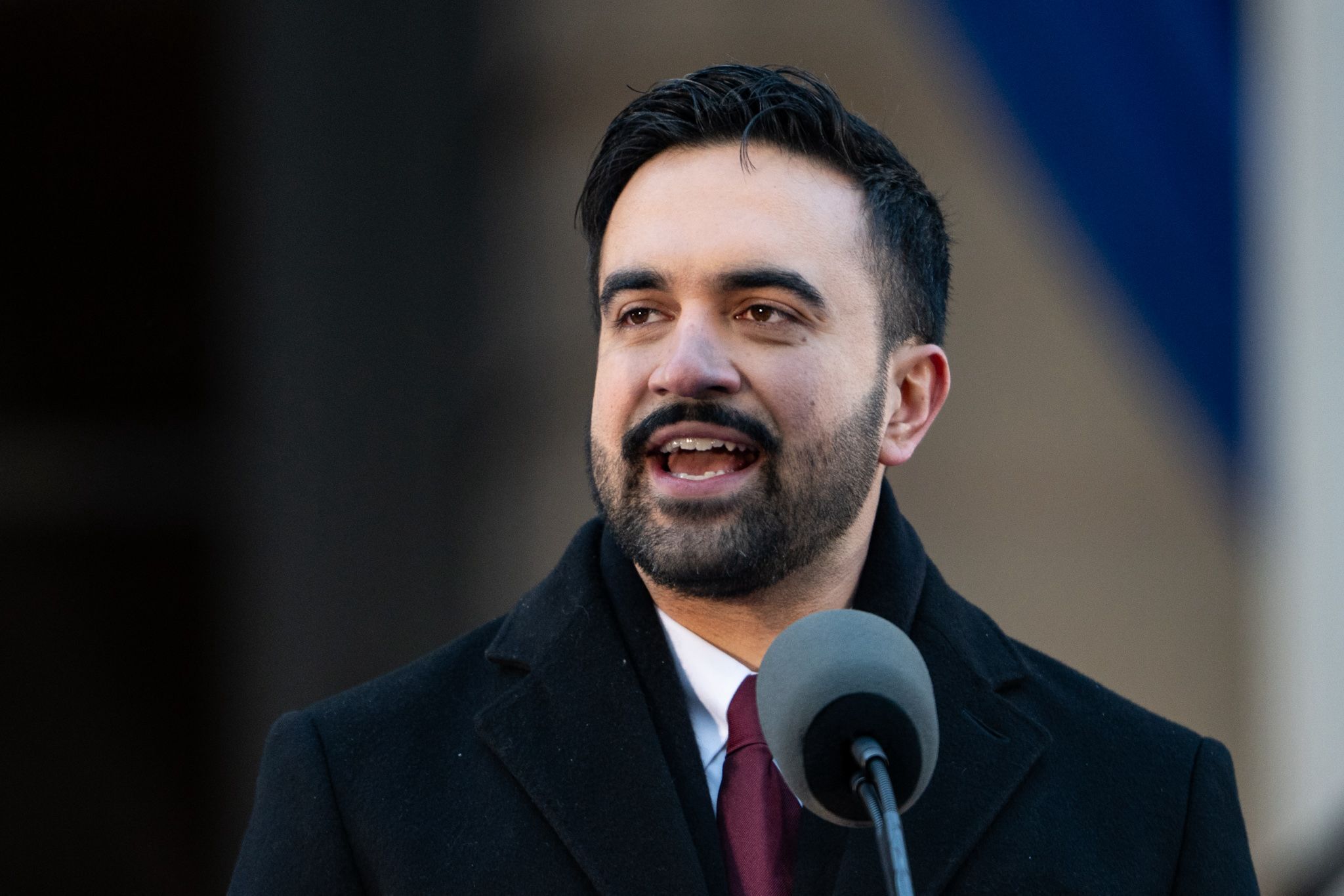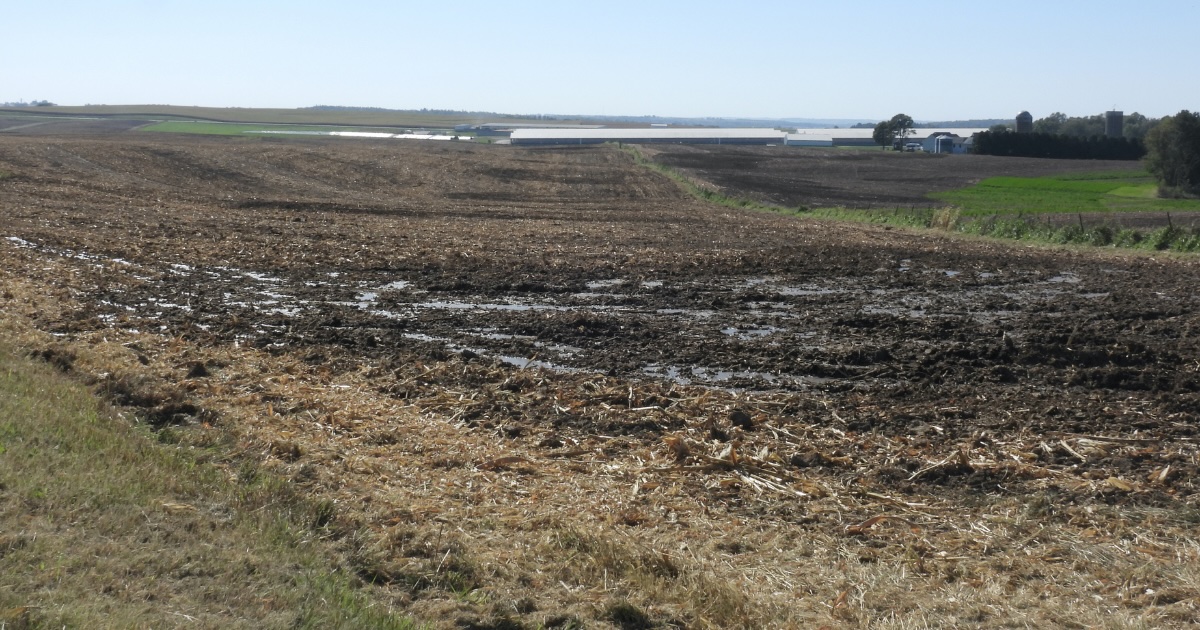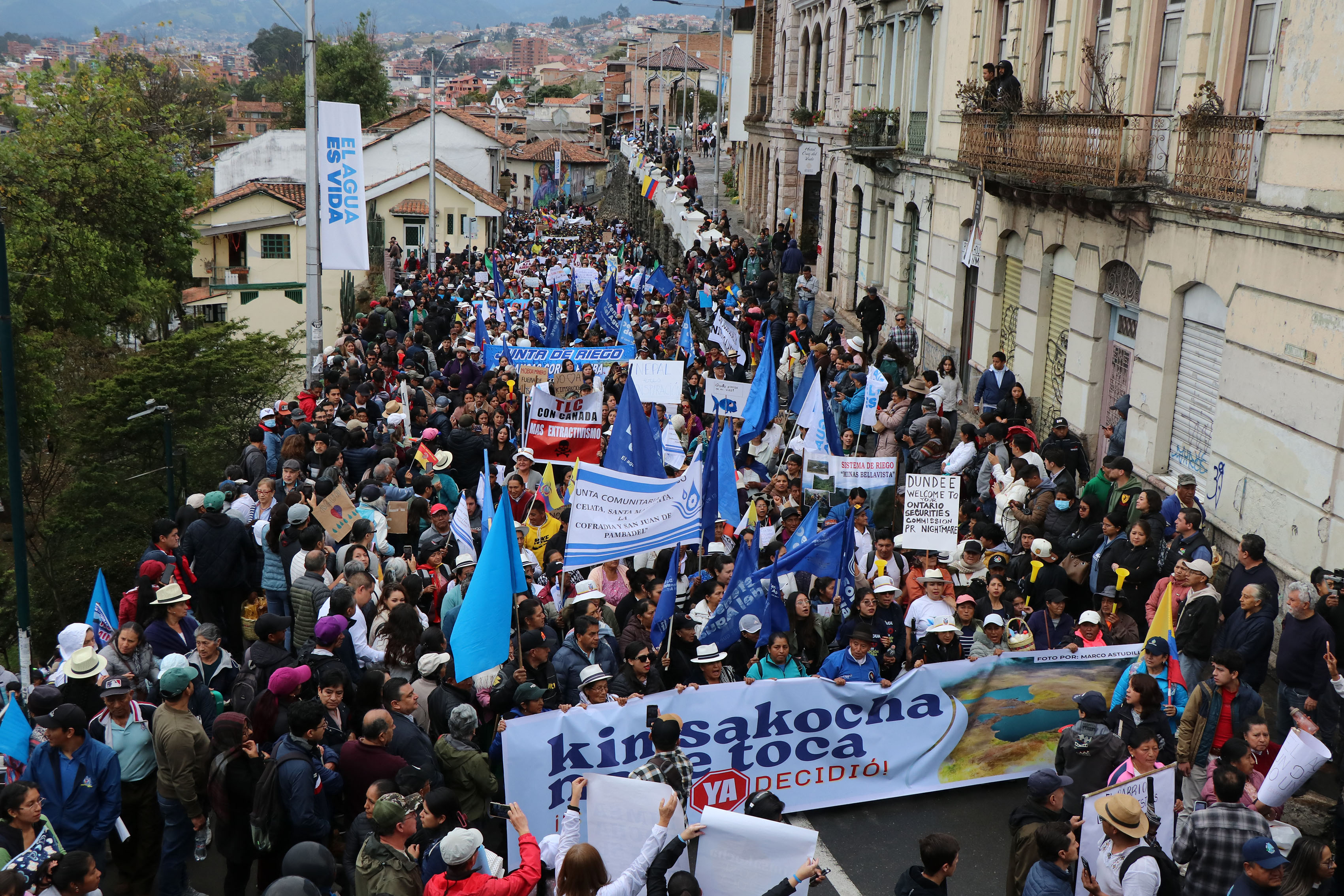A United Nations authority on environmental activism says rising state repression of environmental defenders in Europe threatens human rights and democracy, citing international legal frameworks with implications in the U.S. and beyond.
In a position paper published Wednesday, U.N. Special Rapporteur on Environmental Defenders Michel Forst chronicled the increasing criminalization of environmental activists in Europe and argued for states to protect protesters and listen to their demands instead of harassing, intimidating and repressing those engaged in peaceful acts of civil disobedience.
Meanwhile, the International Center for Not-For-Profit Law tracks state and federal legislation introduced in the U.S. that restricts first amendment rights to peaceful assembly and has found 42 currently enacted laws and 25 pending bills that would restrict these rights.
We’re hiring!
Please take a look at the new openings in our newsroom.
See jobs
Examples include new or expanded “critical infrastructure” laws in Alabama, Arkansas, Indiana, Kansas, Louisiana, Mississippi, Missouri, Montana, North Dakota, Ohio, Oklahoma, South Dakota, Texas and West Virginia that explicitly protect pipelines and mining operations, ramping up fines and multi-year prison sentences for trespassing or impeding operations. Some states will also fine those conspiring with individuals found in breach of critical infrastructure laws up to $100,000.
At the U.N., Forst’s analysis followed a year-long inquiry in a landscape of rising risk for environmental defenders: As global public demand for decisive climate action grows and activists engage in more frequent and targeted forms of civil disobedience, there’s been an uptick in violent crackdowns from law enforcement, harsh sentencing for protesters and legislation to make it harder for protesters to engage in peaceful demonstrations.
The first step toward correcting the deficiencies identified in the report should be for governments to address the climate crisis, which is the root cause of the activism, Forst wrote. States should also proactively counter descriptions of environmental protesters as criminals or terrorists and avoid using the increase of activism as justification to limit civic space for protest.
Sébastien Duyck, a senior attorney with the Center for International Environmental Law, said the new paper is important in the global context of violence against environmental activists, who are being murdered at a rate of about two to four people per week. According to Global Witness, 177 environmental activists were killed around the world in 2022 and 200 were killed in 2021.
The report has relevance for the United States because “the U.S. is one of the countries that keeps undermining the right to healthy environments in international processes,” Duyck said, alluding to the country’s lackluster record on ratifying international human rights and environmental treaties.
Forst’s role, created in 2022, is the first rapid response mechanism to protect environmental activism under the Aarhus Convention, a legally-binding international framework for countries that have signed it, most of which, but not all, are in Europe. The U.S. is not a signatory.

The convention, which was developed in 1998 and ratified in 2001, protects the right to peaceful environmental protest and prohibits the persecution, penalization or harassment of any members of the public seeking to protect their right to live in a healthy environment.
Duyck said the Aarhus Convention was initially created “to bring the post-Soviet world on par with Western European values” with regard to the rights of environmental activists. But the new report clearly shows that there are actions by governments in Western Europe that conflict with the region’s self-proclaimed values, he said.
“In order to be able to protect defenders globally, European governments must really take a good look at their own failures,” he said.
State Repression Threatens Democracy
Forst “considers this repression and criminalization to constitute a major threat to democracy, human rights, the civic space, and to the exercise of rights guaranteed under the Aarhus Convention,” he wrote, and “considers a profound change in how States respond to environmental protest to be urgently required.”
He outlined how media and political discourse have contributed to the villainization of peaceful protesters and catalogs how legislation is increasingly used to criminalize environmental protest, pointing out characterizations of terrorism. Denmark’s security and intelligence service’s center for terror analysis has included “climate extremists” on a list of terrorist threats since 2022, despite acknowledging that there are currently no “climate extremist” groups willing to employ violent tactics. In Spain, a 2022 public prosecutor’s office report listed the climate group Extinction Rebellion under “international terrorism.” And in Germany, police have arrested and detained climate activists preventively.


A European Union report from last year on trends in terrorism includes a section on extremism that focused heavily on “environmental extremism,” listing protest tactics such as street-blocking and the occupation of bank buildings, energy companies, public institutions and airports as examples of extremist behavior, a characterization Forst said is “worrying.”
The U.N. paper came a month after Forst released a strong statement condemning state repression of environmental protest in the United Kingdom, calling the situation “extremely worrying,” and calling out “regressive” legislative developments that allow peaceful protesters to be prosecuted for criminal offenses and subject to up to 10 years of imprisonment.
“The right to peaceful protest is a basic human right,” Forst wrote. “As the UN Human Rights Committee has made clear, States have a duty to facilitate the right to protest, and private entities and broader society may be expected to accept some level of disruption as a result of the exercise of this right.”
In the U.K., environmental defenders have been denied the right to speak to juries and subjected to harsh bail conditions including curfews, electronic monitoring, GPS tracking and multi-year bails, Forst wrote. He also expressed concern about the use of civil injunctions to preemptively ban protests, and condemned the derision of environmental defenders from media and political figures.


“The toxic discourse may also be used by the State as justification for adopting increasingly severe and draconian measures against environmental defenders,” Forst wrote. “In the course of my visit, I witnessed firsthand that this is precisely what is taking place in the UK right now. This has a significant chilling effect on civil society and the exercise of fundamental freedoms.”
Reinhard Steurer, a climate policy researcher at the University of Natural Resources and Life Sciences in Vienna echoed that state repression of environmental protest is on the rise in several European countries.
He pointed out multi-year prison sentences for environmental protests in the U.K. and police use of pain grips in Germany, the latter of which he argued fits in with a U.N. definition of torture.
“Overall, the democratic right to protest against obvious government failure is clearly under attack and our democracies are at risk,” Steurer said. “I always knew that the climate crisis is a threat to democracies but I did not expect to see this threat materializing already in the 2020s.”
The new report focuses on the 47 parties to the Aarhus Convention, which include the European Union’s 27 member states as well as countries including Kazakhstan, Tajikistan and Guinea-Bissau, but the trend of harsher crackdowns on environmental defenders is global, said activism researcher Dana Fisher, director of the Center for Environment, Community, & Equity and a professor in the School of International Service at American University.
“There’s no question that that is the trajectory that we will see across the developed world,” she said.
“Overall, the democratic right to protest against obvious government failure is clearly under attack and our democracies are at risk.”
Drawing a comparison to the U.S. civil rights movement and, more recently, Black Lives Matter protests after George Floyd’s murder, where law enforcement pushed back against citizen protest with violent and repressive tactics, Fisher said that state repression comes when social movements become a threat to the status quo.
“Whenever law enforcement or those in power start to feel like they’re really threatened, the gloves come off,” Fisher said. “I think we’re starting to see that around the world.”
In the U.S., Fisher said she’s heard from TV producers that camera operators have been told specifically to turn off their cameras rather than film climate activists, so as not to “egg them on.”
It’s unlikely that repressive tactics will cease in the U.S. or elsewhere, Fisher said.
“States are captured by fossil fuel interests and want to maintain power and legitimacy,” she said, adding that they are likely to escalate repressive tactics in the years ahead.
A Global Backlash Against Environmental Activism with Laws, Violence and Death
Recently, environmental defenders in the U.S. have received stiff federal charges, including felony abduction charges, for civil disobedience. In Atlanta, land defenders with the Stop Cop City movement—protesting a $90 million police training facility in a forest that provides critical environmental benefits—have been surveilled, harassed and violently arrested, and organizers have been subjected to police raids and racketeering charges originally meant to target mafia syndicates. Last year, one land defender at Welaunee forest, Manuel “Tortuguita” Terán, was shot to death by state troopers who claimed Tortuguita shot first, though this was not confirmed by the autopsy, which found Tortuguita with 57 gunshot wounds. The six troopers involved in the shooting did not face charges.


Pipeline protesters in Uganda have faced brutalization and surveillance. Farmworker protesters in India have been tear gassed and censored. Authorities in Australia have passed sweeping legislation criminalizing environmental activism, including the carrying of materials like glues and chains that activists sometimes use to lock themselves to mining equipment or protest sites.
Indigenous environmental defenders globally are often at the highest danger of violent repression from law enforcement authorities and private companies working in resource extraction, with those risks often exacerbated by sovereignty disputes and the lack of legal protections for Indigenous land rights. The majority of the more than 1700 killings of environmental defenders in the last decade have taken place in Latin America, often related to resource extraction, with a disproportionate number occuring in Indigenous communities. Both Canadian and U.S. authorities have also come under fire for disproportionate use of force against Indigenous land defenders.
Duyck said a growing trend of privatized law enforcement gives governments additional responsibility, as the report outlines, to protect civil rights.
Corporate actors, including private security companies, also need to be held to human rights standards, he said
This story is funded by readers like you.
Our nonprofit newsroom provides award-winning climate coverage free of charge and advertising. We rely on donations from readers like you to keep going. Please donate now to support our work.
Donate Now
Laura Sullivan, an activist with Last Generation Canada—a nonviolent civil resistance campaign that launched last year—said she’s observed rising repression against activists. After a peaceful blockade of a highway exit last year, Sullivan said she was arrested and temporarily banned from interacting with media, speaking with anyone associated with the group or advocating for the organization’s campaign—which was focused on addressing raging Canadian wildfires that burned over 45 million acres and caused mass evacuations.
She said she thinks the U.N. paper is unlikely to influence governments.
“The U.N. releases a lot of papers that have these quite progressive views, but the governments seem to ignore them,” she said, adding that the paper can help combat a media narrative that paints activists as dangerous criminals.
“All we’re really doing is peacefully, nonviolently getting in the way and disrupting the status quo, so that we can actually have a livable future and survive,” Sullivan said.


















